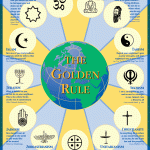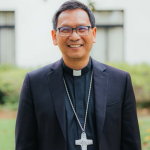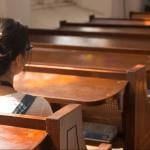I watched my blog in Newport Pagnell….
(I think I’ve done that one before.)
Amy Welborn: I’m not done yet with this post, and don’t expect I’ll even make a sortie on the comments; but I’ll be thinking about it for a while….
…The question that has bugged me for ages is different from that I hear asked by others. Others try to rebuild, to recreate that old sense of Catholic culture–which is admirable, but is it possible? No, what I wonder about is how do we reconstruct Catholic life in the catacombs? By that I don’t mean the extremes of persecution, but as Christians living in a culture that is really inimical to the Gospel, at every point, to the celebration of materialism, consumerism, economic success, personal appearance, to the rank hostility to life and the commoditization of sex. Christianity was born and flourished in the Roman Empire, in conditions hostile to it. There was no “Catholic culture” as we associate it with Christendom on. I’m thinking it is more useful and to the point to imagine myself, as a Christian, living in the time of Domitian, than thinking that the answer is to try to recreated 13th century Italy. As I’ve written before, as the witness of Ireland and Quebec show so painfully–is there a shadow to “Catholic culture”? As there is a shadow to everything?
Balkinization: Marty Lederman vs John Yoo:
…Why was this the one point of absolute consensus within the Administration? Isn’t that odd — that the easy point of unanimous agreement was to keep our detention operations outside of our own nation, above all else? It’s not as if these captured persons were all detained where they were found. No — they were shipped halfway around the world; but instead of, say, detaining them at a military brig in South Carolina, which would have been the logical plan, the planes and ships made a sharp left turn at the last moment so that these folks would disembark in Cuba, which is less than 100 miles from the Florida coast.
The reason, of course, for such a resolute determination to keep the detainees offshore, was (as John quite candidly writes) because the lawyers assumed GTMO was a law-free zone — a location impervious to any judicial oversight. And of course, in light of what we were doing to these detainees, there was damn good reason to keep our operations out the plain sight of any courts, lest they have the temerity to insist that the Administration follow the law.
and Brian Tamanaha tells a story I am linking because it interests me, not because I endorse any underlying purposes or assumptions (whereas I think I do endorse the Lederman post in content and purpose–I don’t know nearly enough to do more than find the Tamanaha post interesting):
…I am able to recount the details of this event because the assistant federal public defender was me, handling the case in the mid-1980s. To recap the hard-to-believe basics of the situation: in the middle of a trial, I was charged with three criminal offenses on the grounds that the questions I asked in open court prompted the witnesses to disclose classified information. At the time of these supposed offenses, the prosecutors objected neither to the questions nor the answers, and neither they nor the judge gave any indication of a problem until the moment the charges were lodged against me. So there I was, still handling the ongoing trial, but now also facing my own trial to begin 30 days after the current trial was over. Despite my compromised position, I was not allowed by the judge to withdraw as defense counsel, and our request for a mistrial in the ongoing case was denied. I continued to examine witnesses from the CIA, but now with pending criminal charges hanging over my head, and a real prospect of more to come.











